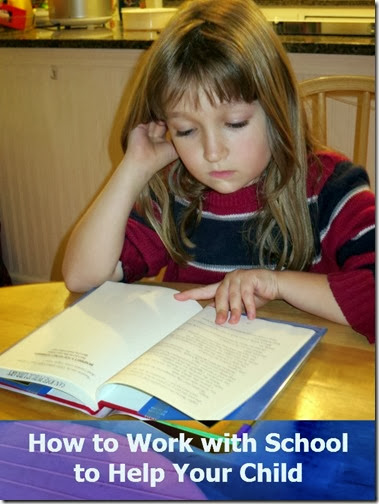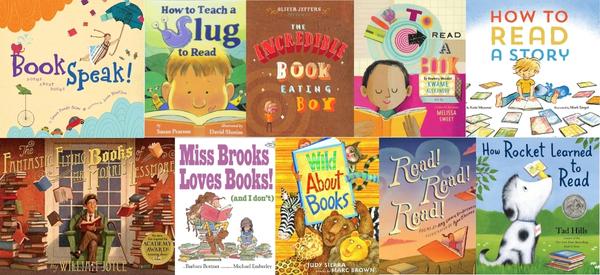Read This If Your Child is Unhappy at School
This post may contain affiliate links.
written by Natalie, mom and blogger at Afterschool for Smarty Pants
I am very honored to be posting on Imagination Soup today, but I am going to talk about a difficult topic.
When our children go to school, we all want them to be happy and motivated. We want them to love learning, make friends, and keep growing in their abilities.
But what if things don’t go well at school?
What if your children struggle in the classroom, report being bullied by classmates, say that the teacher is too strict or that they are bored?
What if they develop mysterious stomachaches that disappear on weekends or beg you constantly to give up your job and homeschool?
How do you help your children?
I want to share our own experiences in this post. Our second grader goes to a “good” public school in California. We love that our school places a lot of emphasis on reading and writing, organizes special meetings with local authors, and has been focusing a lot on getting children moving during recess. At the same time, our daughter has been complaining all year that she is bored and that everything has been “too easy” for her. When she is trying to use multiplication instead of addition, her work is marked as “incorrect”, and a teacher is complaining that our daughter is “correcting” her in class when her slides have spelling mistakes (I saw those spelling mistakes myself).
Even though it’s tempting to swoop down and set things right, I recommend using CALM DOWN approach when advocating for your child. The only situation when I recommend an immediate intervention is when your child reports being bullied or you observe your child being bullied. So what does it mean to CALM DOWN?
CALM DOWN Approach
C – Craft your desired outcome
It’s best to spend some time envisioning specific changes that could improve your child’s school life. In our case my husband and I discussed at length as to whether or not we want to “skip” our child and decided against it. Instead we asked for math testing and a pull out into an appropriate grade level.
A – Assemble your evidence
If your child is struggling in school but not at home, perhaps you could record him doing his work or reading. You might have to bring pediatric records if your child has a disability that requires accommodation or bring samples of her work done outside of school hours.
L – Learn your rights and consider your options
Different countries and states have different rules on accommodating both struggling learners and gifted learners. You should also consider what you will do if your requests are not met – this could include negotiating a partial solution, looking at private schools, or homeschooling.
M – Meet with your teacher first
It’s quite possible that your teacher is not aware of the situation – after all, he or she deals with many students of very different needs. If your meeting with your child’s teacher doesn’t bring results (our meeting resulted in Oh, Common Core allows differentiating students within the same curriculum, and we don’t do pull outs here), then schedule a meeting with a principal.
D – Don’t get confrontational
You have to believe that your child’s teacher has your child’s best interests at heart. Also, don’t forget that a teacher is also human and is focused on his or her goals. Unfortunately, challenging advanced learners is simply not one of the goals our teachers are asked to meet.
O – Offer help
I volunteer in the classroom weekly and help struggling students with math. This time spent in the classroom gave me new appreciation for my daughter’s and her teacher’s challenges as about 30% of her classmates fall far below expected level of the second grade. It is very understandable that her teacher needs to spend her energies getting struggling students to the level expected for the second grade.
W – Write things down
It’s important to put things in writing, especially if you are trying to put an individual educational plan in place. We don’t qualify for IEP in California, but I still document our conversations, so we don’t need to spend a lot of time on bringing everyone back on the same page.
N – Next steps
All parties need to be clear about next steps and timelines for them. Unfortunately, in our experience we discovered that reminders are needed to progress towards some sort of resolution and even then the progress is slow. At this point we are starting to consider what our alternative “next steps” might be if our “Distinguished California School” cannot accommodate a child who wants to know more than she is “expected to know” at her age.
Final Thoughts
The last advice that I have is that while you are going through these steps, it is important to do it in a way that doesn’t directly involve your child or involves him or her as little as possible.
We don’t want our daughter to know that we are unhappy with her school unless we are prepared to take her out. We also want her to continue to put forward her best effort in her studies.
Changing schools is a big step for any family, and the one that my husband and I are still debating between ourselves while waiting for our school administration to get back to us with a concrete proposal for this year and next year.
But the good news is that parents have options and we have both the right and the responsibility to be an active partner and an active advocate for our children in school.
KEEP READING:
Quick Picks for Reluctant Readers








My 2nd grade daughter is going through this now. She loves learning but is miserable and bored in school. She thrives on participation and likes attention. Her class has 33 children with 0 help. Due to “student confidentiality” parents may not volunteer with children in the classroom so her teachers attention must be evenly spread between 33 little ones. I have an education background and give my daughter enrichment homework at home and we love going to museums together. She cries every night that she wants to be homeschooled because she can learn new, more challenging material with me. The school has also replaced recess/free play with structured games in an effort to “combat bullying.” My daughter hates it and would prefer to do cartwheels on the grass or play tag. I do think we should move schools but don’t know if it should be mid-year or to a hybrid homeschool program. I’d prefer full time school but cannot afford private. What should I do?
Natalie,
Such a useful post. I’m going to pop it on Pinterest for when I need it or to share with parents I work with if they need it. Nice to have a structure to get thoughts together when emotions can run high. Very much agree with comments below that talk about how very different one year and teacher at a school can be compared to another and what different levels of care and support this leads to. Thank you for the post.
Some years are definitely harder than others (we are having one of those right now). These are great suggestions. I have also found it helps to be calm and prepared for teacher conferences and to follow up. More than anything else I think it is important that kids enjoy school!
My son has ADHD but is extremely smart and bored in class. Last year we were in a different school. He had the same behavior problems. The teacher then would send him to the special education room to run on the treadmill to get his energy out. She had no problems helping him in that way because when he would return to class he was always the first one answering questions. That actually became a problem because the other children were not being able to get their chance. They then came up with a 20 question rule for the day and the year got better and better. His teacher had been teaching for 20+ years. In his last IEP she pulled me to the side and told me how great a kid he was and not to worry about all of this(while gesturing to the meeting room). She said in time he will mature and this will all go away. I wanted to cry. She had said the best thing anyone had truthfully said to me about my son and reassured me that it was all going to be ok in time. She was always honest with me and didn’t sugar coat anything for me. I respected her more for that. Now he is unfortunately in a different school due to moving. They have a color system for behavior but not just one teacher controls it. So, if he miss behaves he has to move a color when he gets back to his home room class. His confidence becomes lower and lower and when he gets to a certain color he gives up entirely on the whole day. He no longer wants to learn at school and only cares about seeing his friends. Any advice on how to handle that with the school? I’ve already had a group meeting with the principal,teacher, special education teacher, guidance counselor and school phycologists. The only thing they could come up with is a warning system for before colors are moved and more time in special ed room. Which I didn’t want. That was suppose to be a last resort not a habit. He would go weeks last year without having to go in the room. They were not understanding what I wanted and only looked at him as a classic labeled “bad kid”. I was called and told they had never dealt with a child like him before. WOW! I knew that was a lie! I like the teachers and staff and it almost seems though that he’s also getting the “new kid” label and being watched like a hawk. I have to add, He is in 2nd grade in a VERY small school with only maybe a little over 30+ students in the whole grade. He wants to go back to his old school but I want to give this one a chance since we moved here and just up the road.
This is a really tough situation, and it’s not a good sign that they “have never dealt with a child like him before”. We also have a color system in our school, and I don’t like it for similar reasons. How is your son doing on academics? I’ve seen kids who spend too much time out of the classroom falling behind, and this is another reason why something has to change. Is there any chance you could be present more in the classroom as a volunteer, at least once a week, to evaluate situation with your own eyes?